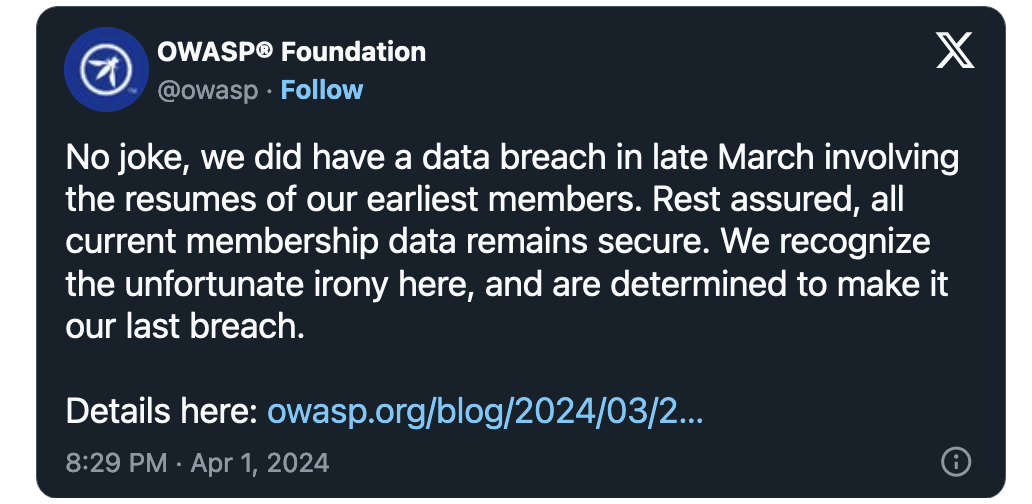
The OWASP Basis has disclosed a knowledge breach after some members’ resumes had been uncovered on-line because of a misconfiguration of its previous Wiki net server.
Quick for Open Worldwide Software Safety Mission, OWASP is a nonprofit basis launched in December 2001 and focuses on software program safety.
It now has tens of hundreds of members and greater than 250 chapters that arrange instructional and coaching conferences worldwide.
OWASP says it found the Media Wiki misconfiguration in late February following a number of assist requests. The incident impacted solely members between 2006 and 2014 who offered resumes when becoming a member of the inspiration as a part of the previous membership course of.
“The resumes contained names, e-mail addresses, cellphone numbers, bodily addresses, and different personally identifiable info,” said OWASP Govt Director Andrew van der Inventory.
“OWASP collected resumes as a part of the early membership course of, whereby members had been required within the 2006 to 2014 period to point out a connection to the OWASP group. OWASP not collects resumes as a part of the membership course of.”
The inspiration will e-mail affected people to inform them of the incident despite the fact that lots of them are not members and the uncovered private particulars are, in lots of instances, old-fashioned.
OWASP additionally took a number of measures to deal with the information breach, disabling listing looking and reviewing the net server and Media Wiki configuration for different safety points.
To stop additional entry, they eliminated all resumes from the wiki web site and purged the Cloudflare cache. Moreover, OWASP reached out to the Net Archive and requested that the uncovered resume info be eliminated.
“OWASP has already eliminated your info from the Web, so no rapid motion in your half is required. Nothing must be carried out if the data in danger is outdated,” van der Inventory added.
“Nevertheless, if the data is present, akin to containing your cell phone quantity, please take the standard precautions when answering unsolicited emails, mail, or cellphone calls.”








